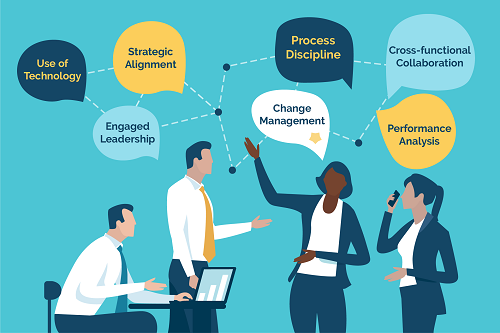
“Education is the Foundation to Build on Entrepreneurship as the Bridge for the Integration of Africa and the Road for the Improvement of Living Conditions of the African Citizens.”
Said El Mansour Cherkaoui
🌐Culture of Entrepreneurship, Innovation, Creativity🌐Social Progress 🌐
American Institute of Entrepreneurship of Africa – AIEA

🌐Entrepreneurial Africa🌐
Interested in the Entrepreneurship in Africa?

Education is one of the factors that prepare an individual for an entrepreneurial career (Dyer, 1994).
“…. There is an urgent need to promote inclusive economic transformation and jobs-induced growth to improve the quality of life for all Africans. Africa’s youth population is rapidly growing and expected to double to over 830 million by 2050.” Source at the end of the page
🌐 Willing to make Africans benefit from your investment: financial or knowledge-based?
🌐 Willing to make Africans benefit from your Expertise as an Entrepreneur?
🌐 Here comes the Sun from Africa to you: Join our team!
🌐 Let it Be Shining and you will be at the forefront of building the foundations of the New African Entrepreneurial Innovative Mind!
🌐 Here below is where to find the related presentations in English about the Project of the AMERICAN INSTITUTE OF ENTREPRENEURSHIP IN AFRICA and Said El Mansour Cherkaoui’s other works and publications on Africa.
Africa and Entrepreneurial Drive
Entrepreneurial Career Choice
Several major career development theorists have contributed to the literature on careers. Dyer’s (1994) Model of Entrepreneurial Careers and the Social Cognitive Career Theory (SCCT) developed by Lent, Brown, and Hackett (1994) are two of the most accepted and validated models in the career literature. Dyer’s Model of Entrepreneurial Careers explores four components of the theory of entrepreneurial careers, such as career selection, career socialization, career orientation, and career development (Dyer, 1994).
Entrepreneur and Mentor: Tandem for Operational Innovation
According to our model, entrepreneurial career choice can be influenced by individual factors such as “mentorship”, entrepreneurial attitudes, social factors such as role models, and economic factors such as availability of a resource network, economic resources, and believe in innovation.
The idea of infusing entrepreneurship into education has spurred much enthusiasm in the last few decades. A myriad of effects has been stated to result from this, such as economic growth, job creation, and increased societal resilience, but also individual growth, increased school engagement, and improved equality. Putting this idea into practice has however posed significant challenges alongside the stated positive effects. Lack of time and resources, teachers’ fear of commercialism, impeding educational structures, assessment difficulties, and lack of definition clarity are some of the challenges practitioners have encountered when trying to infuse entrepreneurship into education.
The Certificate of Entrepreneurship Program at the AIEA aims to prepare creative practitioners and entrepreneurial-minded innovators to become valuable contributors to the fields of business, economics, culture, and community at large. Entrepreneurs combine creative, cultural, social, and entrepreneurial spirit to forward innovation goals that invest in communities while solving problems with market-based approaches for the greater good.
[Source: Entrepreneurship in Education]
American Institute for Entrepreneurship in Africa
Educational Training Program Overview
✅ Learn how to develop an effective operation management and assessment of efficiency that is highly valued within your organization.
✅ Understand how to integrate business processes and development.
✅ Develop the skills to identify necessary resources including people and assets that provide the enterprising project and endeavor tangible value.
✅ Learn how to develop a solid business plan for your entrepreneurial project that addresses cost, benefits, and operational aspects.
✅ Integrate and share understanding with colleagues and employees on how to effectively integrate management, business continuity planning, facility and infrastructure management, HR, and others.
✅ Learn how to do this efficiently: Managerial tasks/functions are divided into 3 phases:
★ Formulation of plans
★ Implementation of plans
★ Evaluation of plans.
The Entrepreneurial Program Advantage at the American Institute of Entrepreneurship in Africa
Selecting and Developing the Business Case
The key task behind planning and assessment of an entrepreneurial motive and idea is developing an understanding of the organization to be assessed through an analysis of the following steps that evaluate the business case.

The Entrepreneurial Management Process

Entrepreneurial Drive

Understand how to educate Entrepreneurs and Business Leaders on the realistic impacts of identified aspects of the SWOT approach, presenting potential strategies to mitigate those impacts, then enacting the option chosen by the business in line with accepted levels of business risk tolerance.
NEXT LEVEL – CRITICAL THINKING
Critical thinking is so often a forgotten aspect of the risk analysis and assessment process, yet it is fundamental to risk analysis and assessment. Understanding how to formulate a question, knowing what you’re looking for, and how that information is applied is indispensable to this process of risk assessment. By exploring other points of view and understanding other perspectives, you learn more about the subject, can reflect on the information you have, and how you feel.

Identification of Entrepreneurial Drive Through Critical Thinking / SWOT
Learn to identify and characterize the organization’s assets in the context of critical thinking – the basis for all good analysis. This is the foundation for criticality and consequence analysis as well as for a majority of probability analysis, vulnerability analysis, and risk analysis itself that can be conducted through the SWOT Approach.
Comprehending the Strengths, Weaknesses, Opportunities, and Threats is the first step in Entrepreneurial Assessment.
Analyzing the Strengths and Opportunities
The scope should define the processes, functions, activities, physical boundaries (facilities and locations), and stakeholders within the boundaries of the risk assessment program.
- What is the scope of the entrepreneurial project as defined by the planning process?
- Is it meeting the entrepreneurial’s objectives one of the strengths?
- Does the planning process consider the context of the organization, its needs, and requirements?
- Learn how to match the scope to the resources available to reach the next level of implementation.
Treatment of the Weaknesses and Threats
Weaknesses and Threats are rating scales that are defined concerning an entrepreneur’s objectives and scope. They are typically measured in terms of impact and occurrence. Impact scales of Weaknesses and Threats should translate the units of measure used for organizational objectives, which may reflect different types of impact such as financial, competition, and/or management of products, services, human resources, and customer/client relationships.
ENTREPRENEURSHIP and CHANGE MANAGEMENT
Managing the change process by example of leadership and reallocating human resources and competencies for adequate productivity, teamwork, discipline, accountability, and reaching the same goals while sharing the same benefits with equity and responsibility.
Entrepreneur – Manager and Change Management

- The Role of the Management is not only to Change just the shape of the Bottle
- The Role of the Management is not only to Change the Label
- The Role of the Management is not only to Change the Distributors of the Bottle
- The Role of the Management is not only to Change the Consumers and Buyers of the Bottle
- The Role of the Management is not only to Change the Content of the Bottle
- The Role of the Management is to not only to Change the Process of Making and Pouring the Liquid in the Bottle
- The Role of the Management is to change the Concept of/in the Creation of the Liquid in the first place.
COURSE SAMPLE – TRAINING SEMINAR ENTREPRENEURSHIP & ENTREPRENEURIAL MARKETING
CERTIFICATE ENTREPRENEURSHIP

CERTIFICATE INTERNATIONAL TRADE

Duration of the Entrepreneurship Program
Illustrative Sample and Design of Model
Multiple Courses will be provided for Free
Entry Terms: Fall & Spring – Available 100% Online: Yes
Credits Required for Training-Study Program Completion
This 5-day Study Program offers a comprehensive examination of all aspects of planning and implementing an entrepreneurial assessment program for any organization, small or large, public or private, and in any industry or setting. Through engaging lectures, eye-opening case studies, and practical exercises, the American Institute on Entrepreneurship in Africa program not only covers the essential topics listed but also provides opportunities to apply the principles through the offering of mentorship and consulting services, and follow-up orientations and regular online checking-up meeting and web organized brain-storm sessions.
Please Note:
Cancellation Policy
The Entrepreneurial Study and Training Programs at the American Institute of Entrepreneurship in Africa is committed to creating opportunities for all driven professionals. We understand that issues may arise that may prevent your timely participation in our programs.
If a participant cancels one month before the start of a program, a full refund of course fees will be issued. If a participant cancels between one month and one week before the start of the program, a 75% refund of course fees will be issued. If a participant cancels within one week of a program, no refund will be issued.*
AIEA reserves the right to cancel a program due to low enrollment or extenuating circumstances (e.g. natural disasters, acts of terror). In the case of such a cancellation, all participants will receive a full refund of course fees.
*These guidelines only apply for programs without lodging and accommodation. For programs in which course fees include lodging and accommodations, please contact info@triconsultingkyoto.com

In collaboration with the https://africanaenterprise.com – TRI CK USA and Global Center for Trade – GLOCENTRA, a study program with a Certificate is offered to enable Nascent, Rising, and Existing Entrepreneurs to acquire the technical knowledge that is making a difference in establishing and consolidating Entrepreneurial Drive and Enterprise Growth.


